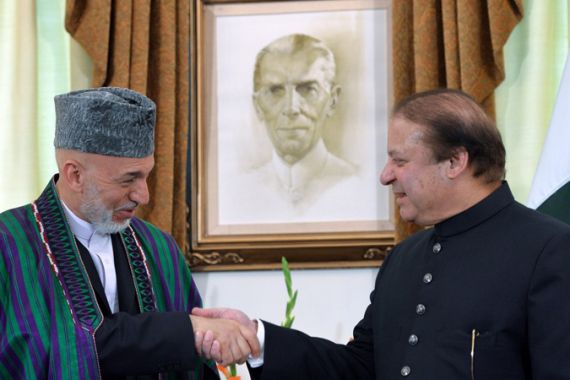Afghans in Pakistan for Taliban peace talks
Senior officials seek talks with captured Taliban commander to secure agreement to end bloodshed.

Senior Afghan officials have arrived in Pakistan to initiate peace talks with the Afghan Taliban, officials from both countries have said.
A spokesman for Afghanistan’s High Peace Council, Mohammed Anwar Eshaaqzai, said on Wednesday that a delegation travelled to Pakistan to meet the former Afghan Taliban second-in-command, Mullah Abdul Ghani Baradar.
Baradar, seen by Kabul as the key to restarting peace talks, has been held in an undisclosed location in Pakistan since Islamabad announced in September that it would release him in order to help the Afghan peace process move forwards.
A Pakistani interior ministry official confirmed the delegation had arrived.
“This is a follow-up of what was decided in London and they will meet officials in the ministries of interior and foreign,” the official said.
The delegation’s arrival follows a breakthrough in negotiations during a summit between the Afghan president, Hamid Karzai, the British prime minister David Cameron and his Pakistani counterpart, Nawaz Sharif.
Karzai formed the Afghan High Peace Council in 2010 to pursue a negotiated peace with the Taliban, who have been leading an insurgency since being ousted from power by US-led forces in 2001.
Baradar is a long-time friend of the Taliban leader, Mullah Omar, and Afghanistan believes he is still powerful enough to persuade fighters to lay down their weapons and make peace.
He was the Taliban’s deputy leader and one of their most influential commanders until he was arrested in Pakistan in 2010.
Pakistan announced his release last month but he remains in the country under close supervision.
Afghanistan has called for Baradar’s release for years. His captivity in Pakistan has been a source of tension as anxiety grows ahead of the withdrawal of most US-led troops from Afghanistan, planned for the end of next year.